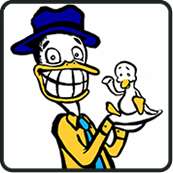- Get an allergist. Your allergist can take into consideration your individual needs and provide you with prescriptions for drugs less likely to cause drowsiness than over-the-counter remedies. To find an allergist near you, go to the directory at the American Academy of Allergy, Asthma, and Immunology. Tell him or her as much as possible about the nature of your hay fever (what you react to, when you react, and what your symptoms are), and ask lots of questions about your options for treatment.
- Antihistamine pills. These are a tricky set of drugs. Histamine is a natural substance that your brain needs to function properly, so antihistamines block this functioning. That's why over-the-counter boxes of antihistamines often read, "do use while operating heavy machinery." The stuff makes you completely loopy. The latest generation of antihistamines has improved a lot; they are less likely to cause drowsiness and there is less of a risk of dangerous side effects. Some possibilities are Allegra (fexofenadine) and Claritin (loratadine).
- Sprays and drops. Antihistamine pills won't do everything, so it's often a good idea to combine your drug regime with one or more of the following:
- Nasal decongestant spray (helps cut down on mucus production)
- Cromolyn sodium nasal spray (a preventative)
- Topical nasal steroids (which reduce the number of histamine-producing cells in the nose)
SoYouWanna know more? Check out our full-length article SYW manage your hay fever?

